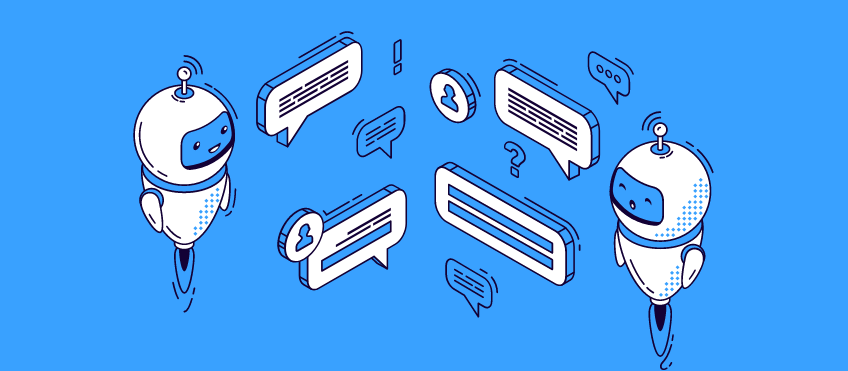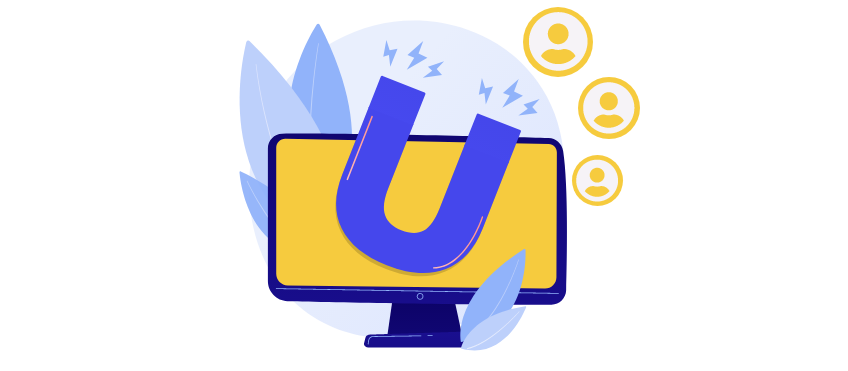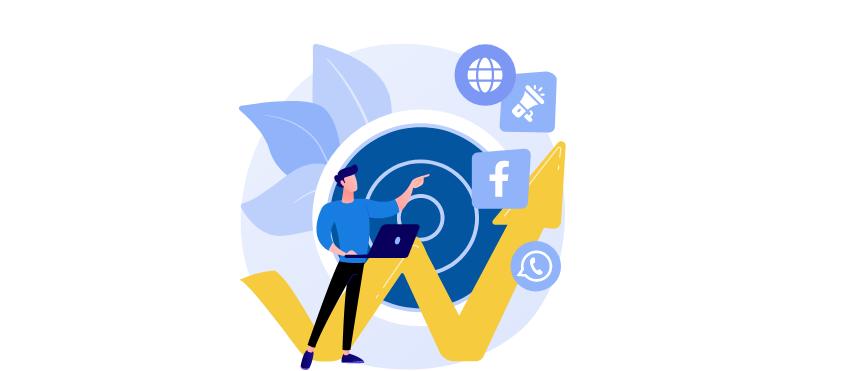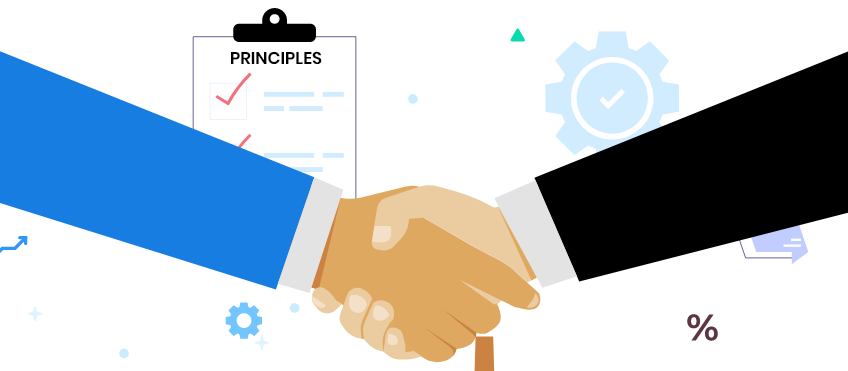Industry use cases of chatbot 2024!

Industry use cases of chatbot 2024!
With artificial intelligence evolving steadily, the applications implementing AI are finding their use better and on a broader basis. A chatbot is one of the gems created using AI. While many businesses are moving towards chatbots, 57 percent of them have already agreed that conversational bots can deliver a large return on investment for minimal effort.
According to Juniper’s Research, chatbot conversations hold the potential to deliver $8 billion in cost savings by 2022.
Before we dive into the use cases of chatbots, let us have a quick glance over the wide range of industries that are already using chatbots or have the potential to adopt one in the future:
- E-commerce
- Banking
- Human Resources (HR)
- Sales and Marketing
- Government
- HealthCare
- Insurance
- Real Estate
Chatbots are already causing disruptions in many sectors, and the aforementioned are just the beginning.
Chatbots in E-commerce:
On E-Commerce websites, the entire customer journey, right from navigating the entire website to buying the product, happens online. Be it sales, customer support, or customer engagement, chatbot alone can handle everything simultaneously with a no-brainer. A chatbot in time saves nine, and we couldn’t stress more. Many huge brands like Sephora, Nykaa, Vi, IRCTC have introduced their own chatbots in-app and across Facebook, WhatsApp, Kik Messengers. Here are a few tasks a chatbot can take care of:
-
Product Recommendations and Order tracking:
A user might find it difficult sometimes to find his/her desired product. In such cases, based on the user input, a chatbot can come up with accurate recommendations. For example, a chatbot can suggest a perfect dress based on user input specifications. Customer care calls are off the plate now. You can track your order within minutes in just a few clicks.
-
A complete 24×7 support:
Imagine a customer trying to buy a product at 2 am but could not due to some issues. Chatbots can work tirelessly 24×7 while their human agents are off the desk during the night.
-
Cart Recovery:
Abandoned carts seen wisely can be a great source of revenue. A chatbot can remind a consumer about the abandoned carts and redirect them to buying at least some of the products, if not all of them.
-
Gather Customer Feedback:
Customer feedback enables all businesses to leverage the customer experience on their website. One of the examples is Beauty Assistant Chatbot on one of the well-known beauty brand Nykaa’s website! These bots help you in choosing the perfect beauty products based on your inputs.
Chatbots in Banking:
The banking sector has witnessed a huge digital transformation in recent years. From net banking to transferring money online, everyone can carry their bank accounts in their cellphones, quite literally. The AI-powered chatbots make online banking handier in the following ways:
-
Answering basic queries:
A chatbot can solve simple queries like ‘Where is the nearest ATM? How to install an XYZ banking app on mobile? What are the different types of loans?’ within minutes.
-
Lead Generation:
A chatbot can engage with any visitor to the website turning them into leads.
-
Perform easy tasks:
A chatbot can perform simple tasks like money transfer and online transactions.
-
Assist in capturing frauds:
On the bright side, online banking has its cons too. In cases like losing an ATM card or your PIN being misused, chatbots can quickly help you to block your card, account, etc., without any hassle.
-
Personalized banking services:
Personalization is an attraction. According to Accenture, 83% of consumers are willing to share their data to create a more personalized experience. From managing bank accounts, payments, canceling requests to checking balance, a chatbot can do it all. Recently, Kotak Mahindra came up with its AI-powered virtual assistant named KEYA. It is capable enough to answer various queries related to home loans, credit card/debit card, digital banking, and more to name!
By 2022, banks could automate up to 90% of their interactions with chatbots. (Foye, 2017)
Chatbots in HR :
Human Resources is one of the tedious tasks due to the amount of data that needs to be handled regularly. Whether it is an onboarding process or solving an employee query, these human-like chatbots can expedite the toughest tasks. HR Department deals with huge data, paperwork, and maintaining records of day-to-day tasks. The adoption of AI across various industries and professions is efficiently reducing human efforts with each passing day.
Here is a list of ways a chatbot has been assisting people working in the HR Department:
-
Pre-Onboarding:
A recruitment process can extend till days and sometimes weeks. It is tough handling a huge number of applications that flow in for a particular job position. The primitive phase of selecting a candidate, shortlisting CVs, handling queries can be managed by a chatbot.
-
Paperwork Completion:
Often, a new hire may get confused while signing the contracts or attaching any scanned document. A chatbot can guide him/her throughout the entire process in a step-by-step manner.
-
Maintain privacy:
Privacy is the biggest concern in the digital world. Through chatbots, one can understand why his/her confidential data is required. Olivia is one of the virtual AI assistants that automates the process of recruitment. It handles screening, having a Q & A with candidates, and scheduling meets. This is not only a time-saver but the best alternative when there are 100s of applications for a position.
Chatbots in Sales and Marketing:
Marketing and sales go hand-in-hand. Many companies invest hugely in sales and marketing campaigns. Their main aim is to reach out to their cold prospects and turn them into loyal customers. In the bygone days, people followed old school traditional methods. However, with the help of evolving technology, this process has become fun and easy. The end goal remains the same, that is, the promotion of products or services.
Since chatbots are equipped with machine learning, they can converse with users in a human manner.
-
Generate leads in a fun way:
A chatbot can easily attract leads in lesser time by conversing with a user in an engaging and catchy format.
-
Differentiate between warm and cold leads:
Warm leads are the ones who have already engaged with your website and are more likely to make a purchase. Segregating the warm leads cannot be done by the sales team, and this is where chatbots come into the picture.
-
Build your email list effectively:
With chatbots, prompting a user to fill his email id in the chat helps you build your email list with the least effort.
-
Lead Nurturing:
A lead nurtured is a sale converted. To maintain a healthy relationship with the existing consumer, lead generation is an essential step. Chatbots have the capability to store and memorize visitor information. This key feature can be implemented in lead nurturing.
Domino’s AnyWare technology is a pizza order processing interface introduced by Dominos, an international restaurant chain. It provisions placing orders using their menu and carrying out the delivery. The users can access this chatbot via voice, Amazon Echo, Google Home, text messaging, Twitter, and even smartwatches and television.
Chatbots in Government:
Government-run websites usually face a lot of traffic since people trust and rely on them. As an authentic source of information, every visitor’s doubt must be cleared. Sometimes, the website is bombarded with too much information leading to confusion and misguiding the visitor.
Here’s how chatbots are performing in the government sector:
-
Access to public data:
Chatbots can be used to access public data like news, citizen rights, new laws, and much more.
-
Helping with government processes:
The chatbots can help in filling official documents or can guide you in completing procedures on the website.
IRCTC’s chatbot ‘Disha’ is one such example. The chatbot focuses on providing constant support to all the visitors online. From answering queries to checking the status of the train, cancellation policies, and booking tickets, it can assist you in every step.
Chatbots in Healthcare:
The Healthcare sector has been witnessing the magic of artificial intelligence in recent days. The Healthcare sector has been developing so much that we even have bots to accompany people experiencing mental sickness.
There are countless cases wherein a chatbot could help doctors, physicians, nurses, patients, or their families.
Some of the tasks a chatbot can perform are:
- Better organization of patient pathways
- Medication Management
- Early-stage diagnosis
- Booking appointments with the doctor
- First Aid
- Offering solutions for simpler medical problems
Apart from this, health chatbots are also addressing issues in healthcare.
One of the examples is Babylon Health, an online medical consultation, and health service that was found in 2013. The company implements Artificial Intelligence based on individual medical history and general medical knowledge. In the first case, a user reports the symptoms of his/her illness to the app, which checks them against a database of diseases using speech recognition, and then offers an appropriate prescription.
Chatbots in Insurance:
The insurance industry has begun to reap the benefits of the chatbot industry. As of today, the insurance industry faces a myriad of challenges not often seen in other sectors. With digitization coming into the bigger picture, the consumer and the business owner both have started seeing a shift in their expectations. The consumer now shops everything online right from insurance policies, comparing quotes, and even self-service policies. The ease of quick access to the information is one key role the provider has to keep up with.
Imagine if a consumer has to stand in line for hours only to get one of his queries solved, how frustrated it would become! This is where automated insurance agents a.k.a chatbots come into the picture. A website or a landing page with proper details and up-to-date information can help the customer get acquainted with things in a more effective manner.
Here’s how chatbots are performing in the insurance sector:
-
Customer Awareness:
A chatbot can help teach consumers various policies, claims, and self-service policies. These chatbots engage with the visitors and based on the user input, the chatbot suggests the policy plans accordingly.
-
Claim processing & Payment Assistance:
The chatbots can help customers with the updates of their current policies, or help them with concerns related to the existing ones.










